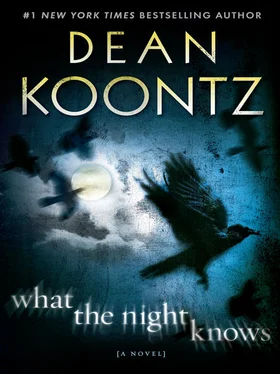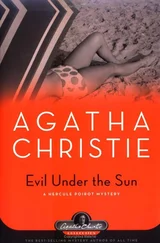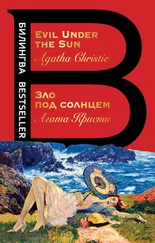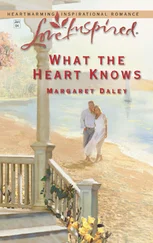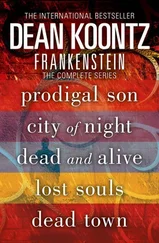
Death, the undiscovered country,
From whose bourn no traveler returns …
—SHAKESPEARE, Hamlet
1
WHAT YEAR THESE EVENTS TRANSPIRED IS OF NO CONSEQUENCE. Where they occurred is not important. The time is always, and the place is everywhere.
Suddenly at noon, six days after the murders, birds flew to trees and sheltered roosts. As if their wings had lanced the sky, the rain fell close behind their flight. The long afternoon was as dim and drowned as twilight in Atlantis.
The state hospital stood on a hill, silhouetted against a gray and sodden sky. The September light appeared to strop a razor’s edge along each skein of rain.
A procession of eighty-foot purple beeches separated the inbound and the outbound lanes of the approach road. Their limbs overhung the car and collected the rain to redistribute it in thick drizzles that rapped against the windshield.
The thump of the wipers matched the slow, heavy rhythm of John Calvino’s heart. He did not play the radio. The only sounds were the engine, the windshield wipers, the rain, the swish of tires turning on wet pavement, and a memory of the screams of dying women.
Near the main entrance, he parked illegally under the portico. He propped the POLICE placard on the dashboard.
John was a homicide detective, but this car belonged to him, not to the department. The use of the placard while off duty might be a minor violation of the rules. But his conscience was encrusted with worse transgressions than the abuse of police prerogatives.
At the reception desk in the lobby sat a lean woman with close-cropped black hair. She smelled of the lunchtime cigarettes that had curbed her appetite. Her mouth was as severe as that of an iguana.
After glancing at John’s police ID and listening to his request, she used the intercom to call an escort for him. Pen pinched in her thin fingers, white knuckles as sharp as chiseled marble, she printed his name and badge number in the visitors’ register.
Hoping for gossip, she wanted to talk about Billy Lucas.
Instead, John went to the nearest window. He stared at the rain without seeing it.
A few minutes later, a massive orderly named Coleman Hanes escorted him to the third—top—floor. Hanes so filled the elevator that he seemed like a bull in a narrow stall, waiting for the door to the rodeo ring to be opened. His mahogany skin had a faint sheen, and by contrast his white uniform was radiant.
They talked about the unseasonable weather: the rain, the almost wintry cold two weeks before summer officially ended. They discussed neither murder nor insanity.
John did most of the talking. The orderly was self-possessed to the point of being phlegmatic.
The elevator opened to a vestibule. A pink-faced guard sat at a desk, reading a magazine.
“Are you armed?” he asked.
“My service pistol.”
“You’ll have to give it to me.”
John removed the weapon from his shoulder rig, surrendered it.
On the desk stood a Crestron touch-screen panel. When the guard pressed an icon, the electronic lock released the door to his left.
Coleman Hanes led the way into what appeared to be an ordinary hospital corridor: gray-vinyl tile underfoot, pale-blue walls, white ceiling with fluorescent panels.
“Will he eventually be moved to an open floor or will he be kept under this security permanently?” John asked.
“I’d keep him here forever. But it’s up to the doctors.”
Hanes wore a utility belt in the pouches of which were a small can of Mace, a Taser, plastic-strap handcuffs, and a walkie-talkie.
All the doors were closed. Each featured a lock-release keypad and a porthole.
Seeing John’s interest, Hanes said, “Double-paned. The inner pane is shatterproof. The outer is a two-way mirror. But you’ll be seeing Billy in the consultation room.”
This proved to be a twenty-foot-square chamber divided by a two-foot-high partition. From the top of this low wall to the ceiling were panels of thick armored glass in steel frames.
In each panel, near the sill and just above head height, two rectangular steel grilles allowed sound to pass clearly from one side of the glass to the other.
The nearer portion of the room was the smaller: twenty feet long, perhaps eight feet wide. Two armchairs were angled toward the glass, a small table between them.
The farther portion of the room contained one armchair and a long couch, allowing the patient either to sit or to lie down.
On this side of the glass, the chairs had wooden legs. The back and seat cushions were button-tufted.
Beyond the glass, the furniture featured padded, upholstered legs. The cushions were smooth-sewn, without buttons or upholstery tacks.
Ceiling-mounted cameras on the visitor’s side covered the entire room. From the guard’s station, Coleman Hanes could watch but not listen.
Before leaving, the orderly indicated an intercom panel in the wall beside the door. “Call me when you’re finished.”
Alone, John stood beside an armchair, waiting.
The glass must have had a nonreflective coating. He could see only the faintest ghost of himself haunting that polished surface.
In the far wall, on the patient’s side of the room, two barred windows provided a view of slashing rain and dark clouds curdled like malignant flesh.
On the left, a door opened, and Billy Lucas entered the patient’s side of the room. He wore slippers, gray cotton pants with an elastic waistband, and a long-sleeved gray T-shirt.
His face, as smooth as cream in a saucer, seemed to be as open and guileless as it was handsome. With pale skin and thick black hair, dressed all in gray, he resembled an Edward Steichen glamour portrait from the 1920s or ’30s.
The only color he offered, the only color on his side of the glass, was the brilliant, limpid, burning blue of his eyes.
Neither agitated nor lethargic from drugs, Billy crossed the room unhurriedly, with straight-shouldered confidence and an almost eerie grace. He looked at John, only at John, from the moment he entered the room until he stood before him, on the farther side of the glass partition.
“You’re not a psychiatrist,” Billy said. His voice was clear, measured, and mellifluous. He had sung in his church choir. “You’re a detective, aren’t you?”
“Calvino. Homicide.”
“I confessed days ago.”
“Yes, I know.”
“The evidence proves I did it.”
“Yes, it does.”
“Then what do you want?”
“To understand.”
Less than a full smile, a suggestion of amusement shaped the boy’s expression. He was fourteen, the unrepentant murderer of his family, capable of unspeakable cruelty, yet the half-smile made him look neither smug nor evil, but instead wistful and appealing, as though he were recalling a trip to an amusement park or a fine day at the shore.
“Understand?” Billy said. “You mean—what was my motive?”
“You haven’t said why.”
“The why is easy.”
“Then why?”
The boy said, “Ruin.”
2
THE WINDLESS DAY ABRUPTLY BECAME TURBULENT AND RATTLED raindrops like volleys of buckshot against the armored glass of the barred windows.
That cold sound seemed to warm the boy’s blue gaze, and his eyes shone now as bright as pilot lights.
“ ‘Ruin,’ ” John said. “What does that mean?”
For a moment, Billy Lucas seemed to want to explain, but then he merely shrugged.
“Will you talk to me?” John asked.
“Did you bring me something?”
“You mean a gift? No. Nothing.”
Читать дальше
Конец ознакомительного отрывка
Купить книгу
